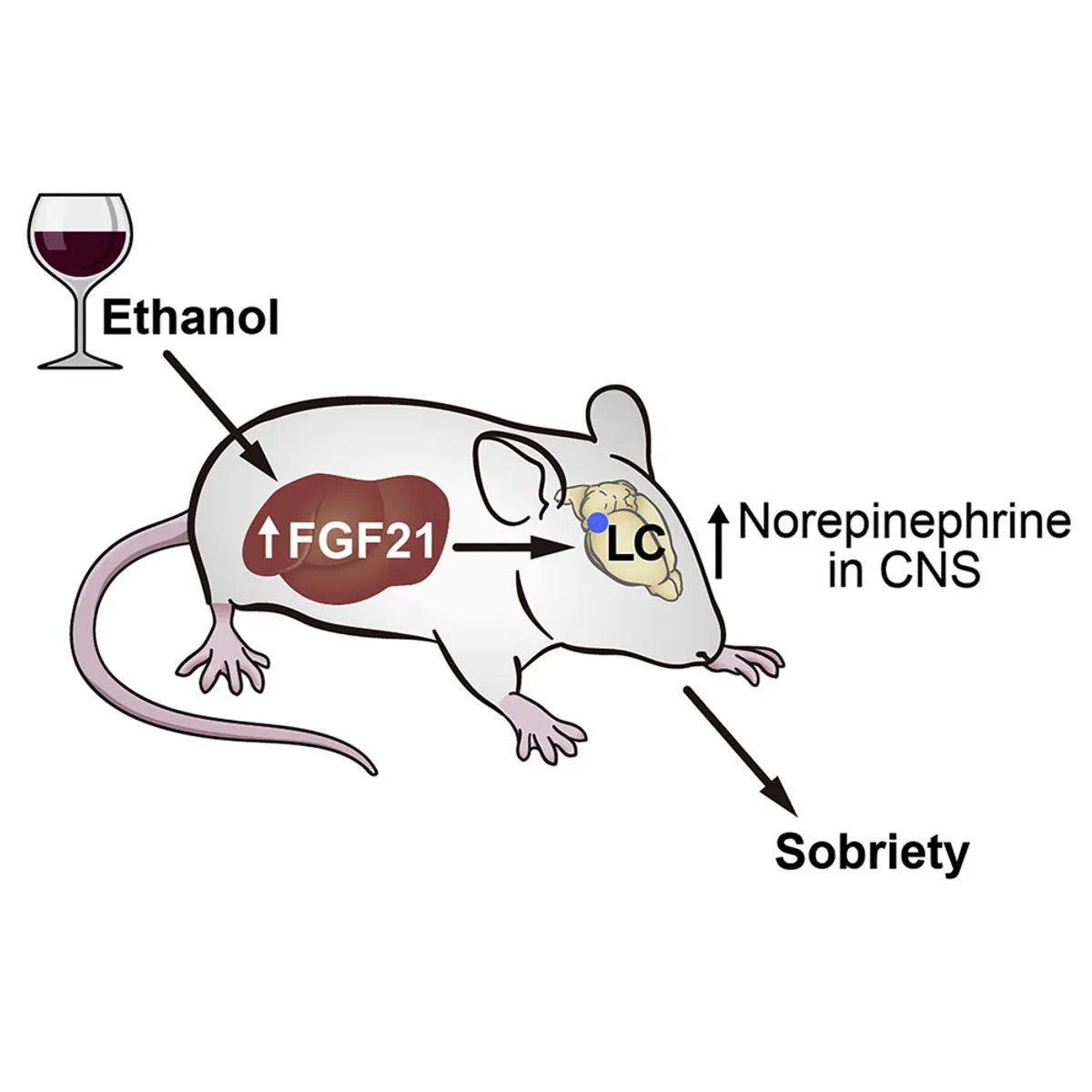Published on
Updated
Reading 2 mins.
According to a new study, the hormone FGF21 could prevent the unpleasantness of the “hangover”. At least that’s what a study that subjected mice to excessive alcohol consumption suggests.
Headaches, nausea, depression… The aftermath of a party is sometimes difficult. If the best way to guard against the famous “hangover” is not to drink, researchers have discovered that a hormonal injection – based on FGF21 – would reduce its effects. The results of this study have been published in the scientific journal Cell Metabolism.
Injection helped mice wake up and stand up
According to the researchers, the hormone in question, produced by the liver, is capable of “sobering up” mice that have lost consciousness because of alcohol.
“Humans have long searched for agents that could reverse drunkenness, and now we’ve discovered something to achieve this effect that was in the human body all along.“said David Mangelsdorf, chairman and professor of pharmacology and researcher at the Howard Hughes Medical Institute.
To reach these conclusions, the scientists administered a large quantity of ethanol to mice to make them unconscious, and thus imitate a session of drinking or binge drinking. They then injected some rodents with FGF21.
“While those who did not receive the injection took approximately three hours to regain consciousness and stand upright, those who received FGF21 were able to accomplish this feat in half the time.“, details the press release of the study.
Another notable finding of the study: the coordination of the rodents who received the injection also improved significantly faster.
The researchers also found that in mice, FGF21 acts on neurons in a region of the brain called locus coeruleus (a region that controls alertness and wakefulness from sleep), which produces the neurotransmitter norepinephrine.

Towards a new therapeutic path?
Faced with these promising results, the researchers believe that an injection of FGF21 could eventually be administered to patients who arrive at the hospital heavily intoxicated.
Still, the researchers don’t want to reinforce the idea that a “hangover” can be easily cured. In any case, it does not claim to reduce the other harmful effects of alcohol, which remains the second cause of avoidable mortality behind tobacco.
“We don’t want to send a signal that it’s okay to get drunk because a treatment can undo it.“, underlined Dr. Kliewer. Before concluding: “FGF21 may possibly prevent some negative consequences for alcohol disabled people.”
A message, shared by Dr. Kierzek.
“There is no miracle cure for hangovers. This treatment would therefore be a great first, but nothing says that it works in humans as it did in mice. Then, in terms of prevention, we cannot tell the population to drink and then inject this product. This is not a solution. On the other hand, if it is used in the medical context, in the emergency room, to treat pathological drunkenness and/or prevent aggravation, why not“, concludes the medical director of Doctissimo.
